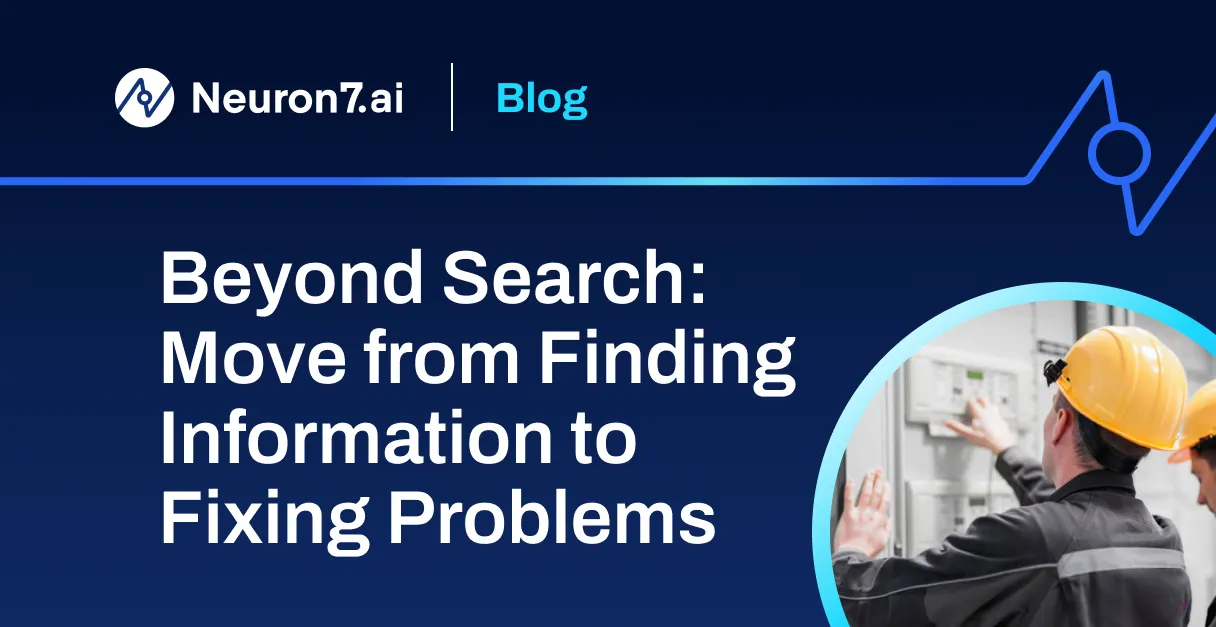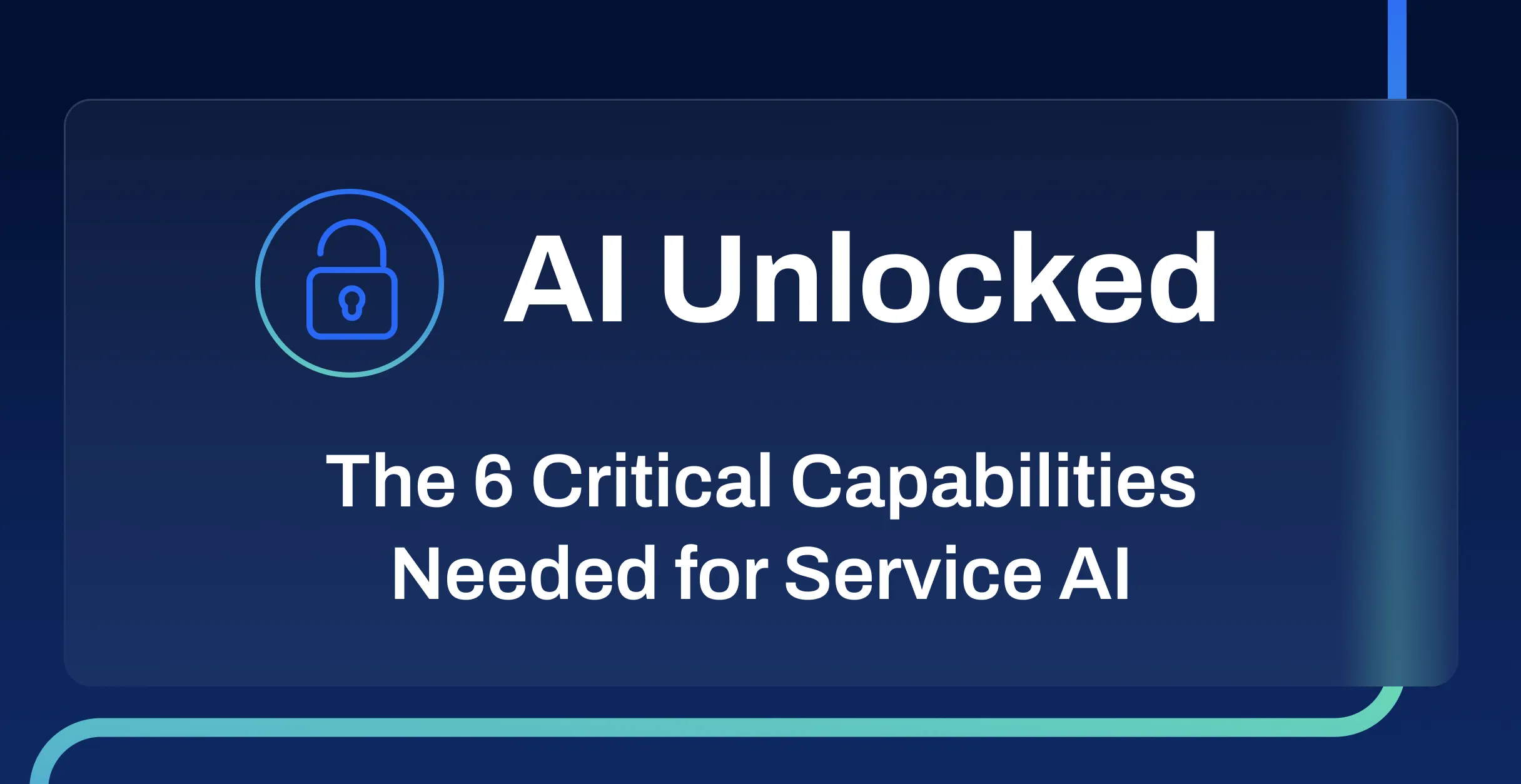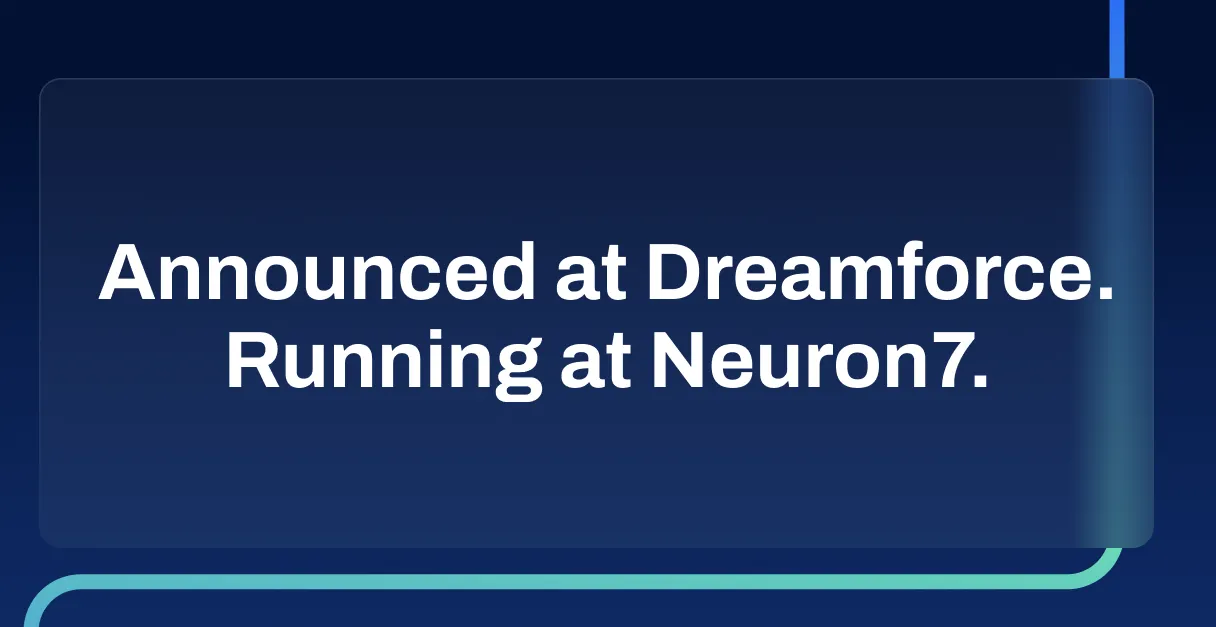Why AI Search Fails Complex Customer Service Issues (And What Works Better)

Why AI Search Fails Complex Customer Service Issues (And What Works Better)
Discover why service leaders are moving beyond AI search tools to Resolution Intelligence for high-impact customer problems.
If you're leading a service organization, you've likely heard the promise: implement AI search with a robust knowledge base and watch your support costs drop while customer satisfaction soars. It's an appealing vision—agents and customers instantly finding answers by simply typing questions into a search box or chatbot.
But reality tells a different story. Despite significant investments in knowledge management and AI search technology, many service organizations find themselves trapped in a cycle of escalations, frustrated customers, and mounting costs. Case in point, 64% of customers would prefer companies not use AI in customer service, with 53% considering switching to competitors if they discover AI is being used.
The hard truth? Most AI search tools were designed for yesterday's problems—static information retrieval in controlled environments. They excel at surfacing basic information but collapse when confronted with the complexity that defines modern service operations.
The Complexity Cliff: Where AI Search Falls Short
When customer issues span multiple systems, involve third-party integrations, or require specialized technical knowledge, traditional AI search tools hit what we call the "Complexity Cliff"—where accuracy plummets to below 50%.
This isn't just an inconvenience; it's a business liability. Our research shows that 63% of service leaders identify high-complexity, high-impact issues as their top priority for AI investment. These are precisely the scenarios where generic AI search tools fail spectacularly.
Consider these critical limitations:
1. Static Knowledge vs. Dynamic Problems
AI search tools (yes even those with fancy new technology like RAG and semantic search), primarily index static knowledge bases and documentation. Yet in complex service environments, critical information is distributed across cases, SME communications, IoT data, and tacit knowledge. When a medical device malfunctions or a telecommunication system shows irregular behavior, the answer isn't in a manual—it's in the patterns of past resolutions, system data, and expert workflows.
2. Symptom-Based Bias
Search-based systems operate on keywords and symptoms rather than underlying causes. This creates a dangerous "replace first, ask questions later" trap where agents and technicians default to the most common resolution (often part replacement) instead of identifying root causes. One medical device manufacturer discovered that 44% of issues could be resolved without parts using guided workflows, versus just 31% with AI search—a difference worth millions annually.
3. Disconnected Diagnostics
AI search can retrieve information but can't guide a diagnostic process. When a customer reports "my device keeps shutting down," effective resolution requires a sequence of investigative steps, each building on previous findings. Search tools return a list of potentially relevant articles, leaving agents to guess which path to take.
Resolution Intelligence: Moving Beyond Search to Solutions
The challenges with AI search have led to the development of a fundamentally different approach: Resolution Intelligence. Rather than simply retrieving information, Resolution Intelligence platforms like Neuron7 focus on delivering guided resolution pathways tailored to specific service contexts.
Here's what makes Resolution Intelligence different:
1. Dynamic Knowledge Capture
Resolution Intelligence draws from hundreds of dynamic sources—cases, SME communications, IoT data, and real-time context—creating a comprehensive understanding of how issues are solved, not just documented. Even the more simple and straight-forward issues and resolutions benefit greatly from precision search capabilities which deliver, on average 90%+ relevance beating ai search and knowledge handily.
2. Guided Diagnostic Workflows
Instead of returning a list of search results, Resolution Intelligence delivers step-by-step guidance via Resolution Pathways through complex diagnostic processes, adapting based on information discovered during troubleshooting. This transforms every service interaction from "search and guess" to "diagnose and resolve."
3. Continuous Learning
Unlike static knowledge bases that require manual updates, Resolution Intelligence platforms incorporate closed-loop feedback, automatically capturing successful resolutions and improving accuracy over time. This creates an evolving system that gets smarter with every interaction.
The Business Impact: Why Resolution Intelligence Beats Search
Organizations implementing Resolution Intelligence are seeing transformative results across key service metrics:
- Resolution Time: Issues that once took hours now resolve in minutes, with agents receiving precise guidance rather than generic search results.
- First Call Resolution: With step-by-step workflows replacing guesswork, agents resolve issues without escalation, improving customer satisfaction and reducing costs.
- Parts Wastage: One medical diagnostics company reduced unnecessary part replacements by 40% in six months by prioritizing non-part resolutions identified through Resolution Intelligence.
- Customer Satisfaction: When agents confidently guide customers through complex issues instead of searching for answers, CSAT scores improve dramatically. One telecommunications equipment provider saw a 14% increase after implementing Resolution Pathways.
The Next Era: Resolution Intelligence is the Future of Service
The limitations of AI search aren't just technical problems—they represent a fundamental misalignment between how service knowledge is traditionally managed and how complex issues are actually resolved.
Resolution Intelligence addresses this misalignment by focusing on the outcome that matters most: getting customers from problem to resolution in the fastest, most efficient way possible.
As service environments grow more complex and customer expectations continue to rise, the organizations that thrive will be those that move beyond the search paradigm to embrace guided, intelligent resolution at scale.
Because your customers don't care how clever your search algorithm is—they care whether their issue gets solved.
Build Your AI Strategy
Start building your AI roadmap now. Visit the AI Strategy Resource Center to book a consulting call with one of our experts today.



